Salary Table of Teachers from 1989 to 2019
- OneKeris

- Jun 11, 2019
- 3 min read
These tables below will show you the salary table of public school teachers from 1989 to 2019 with the salary grade and amount of increases. Along with it are the benefits, allowances, and other more things concerning the monthly salary of teachers.
It is not true that I am against the salary increase of our public school teachers.
As Education Secretary, and as an advocate, I am committed to the policy to promote and improve the social and economic status of public school teachers, their living and working conditions, and their terms of employment. I am in full support of the President’s pronouncement to raise the salaries of teachers.
I have been working with the economic team in the Cabinet to find ways and means to realize a salary increase for DepEd’s close to 830,000 teachers. Last year, when this was taken up in the Cabinet, the decision was to allow the fourth and last tranche of the SSL this year, and for DBM to come up with a study on how to effect the next salary increase. The next salary increase is presently under discussion.
What has been misunderstood, and misrepresented to be a position against a salary increase, was my discussion of the considerations that need to be taken into account in making the decision.
First, we need to carefully assess the fiscal impact of the salary increase. A PhP5,000.00 across the board increase will require an additional P75 billion annually. Raising such amount will have to consider corresponding policies in taxes, borrowing, or budget reallocation.
Second, I emphasize that we cannot think of the teachers alone. There is an equity issue in relation to other government personnel that we need to address.
I have also called attention to the fact that the salaries of teachers have improved over time (see Tables 1 to 3). We also add to the basic salaries the benefits of teachers, some of which are exclusive to them (see Table 4). The salaries of public school teachers have already overtaken the salaries of those in private school, resulting in the migration of private school teachers to the public schools (see Table 5).
I call attention to these not to argue against salary increase, but as a correction to the public notion that public school teachers is still the most pitiful and lowest paid profession. There have been serious efforts to uplift teachers’ conditions that the public should also be made aware of.
I am fully aware that discussing these considerations makes me a target of certain vicious organized groups among the ranks of teachers. They call me names, twist my statements, and amplify negatives to overshadow whatever reforms and gains we make in basic education.
Nonetheless, I also go around the country to visit schools, and I see that most teachers appreciate the efforts that we do for and with them. Yes, there are limitations, yet these do not stop us from sharing music, dance, laughter, and the joy and pride of teaching.
The next salary increase of public school teachers will come. As Secretary of Education and member of the cabinet, it is my duty to help make sure that such salary increase is equitable, within the government’s means, and sustainable.
Secretary Leonor Magtolis Briones
Department of Education
June 6, 2019
Source: DepEd Tayo

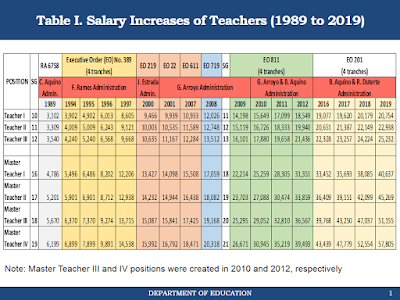

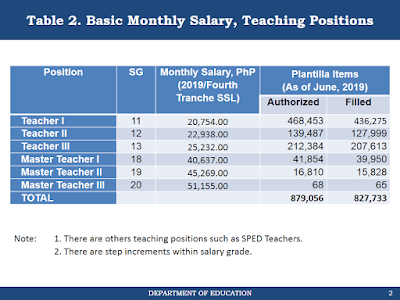

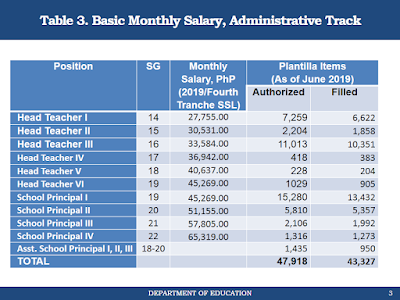



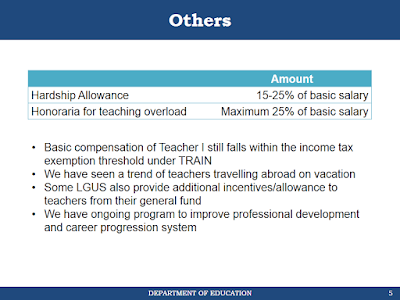

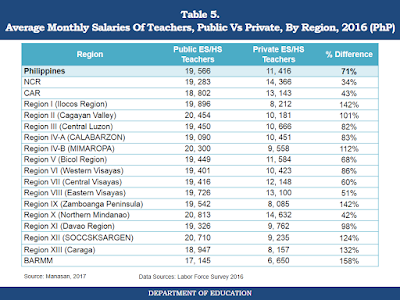

Comments